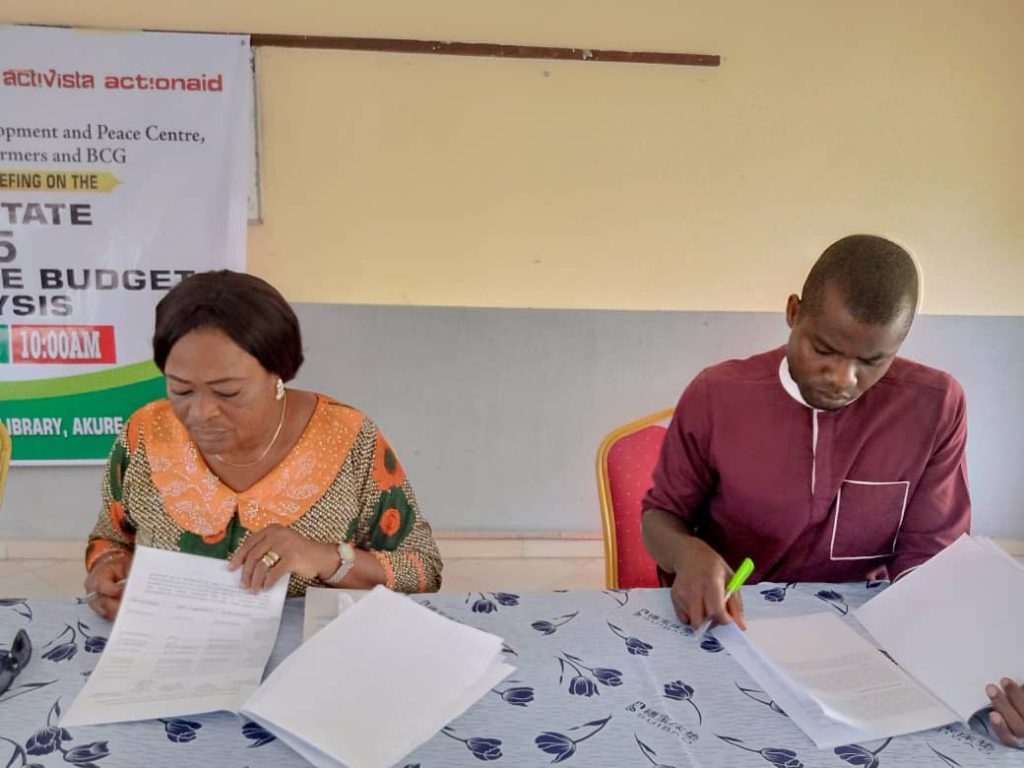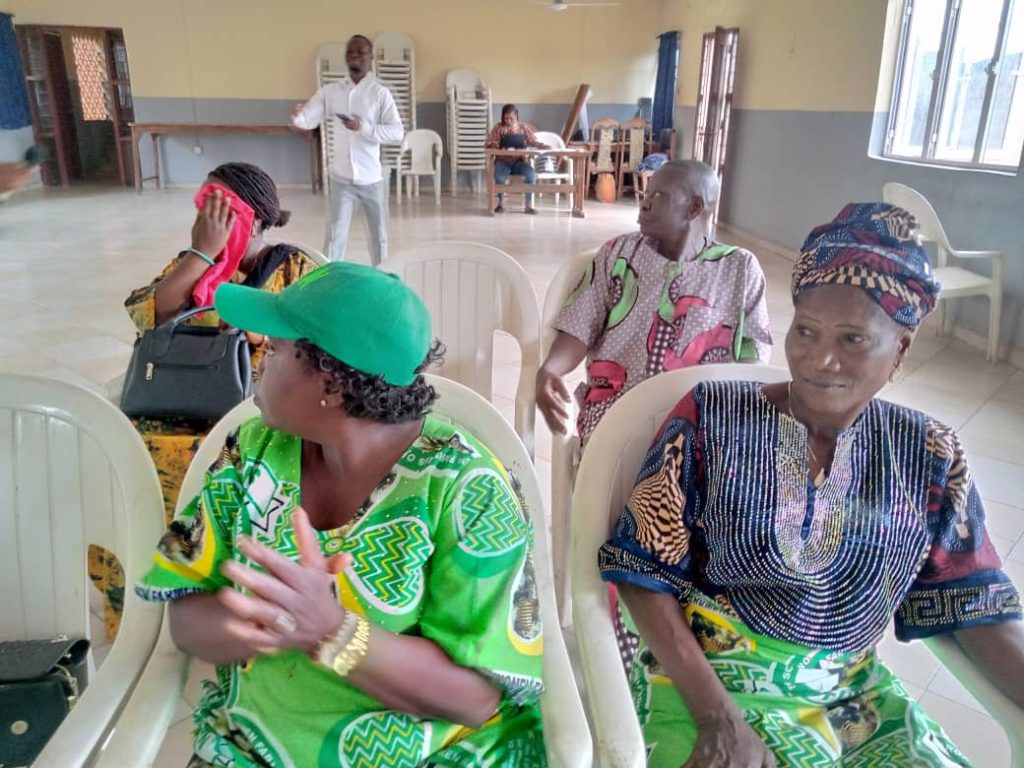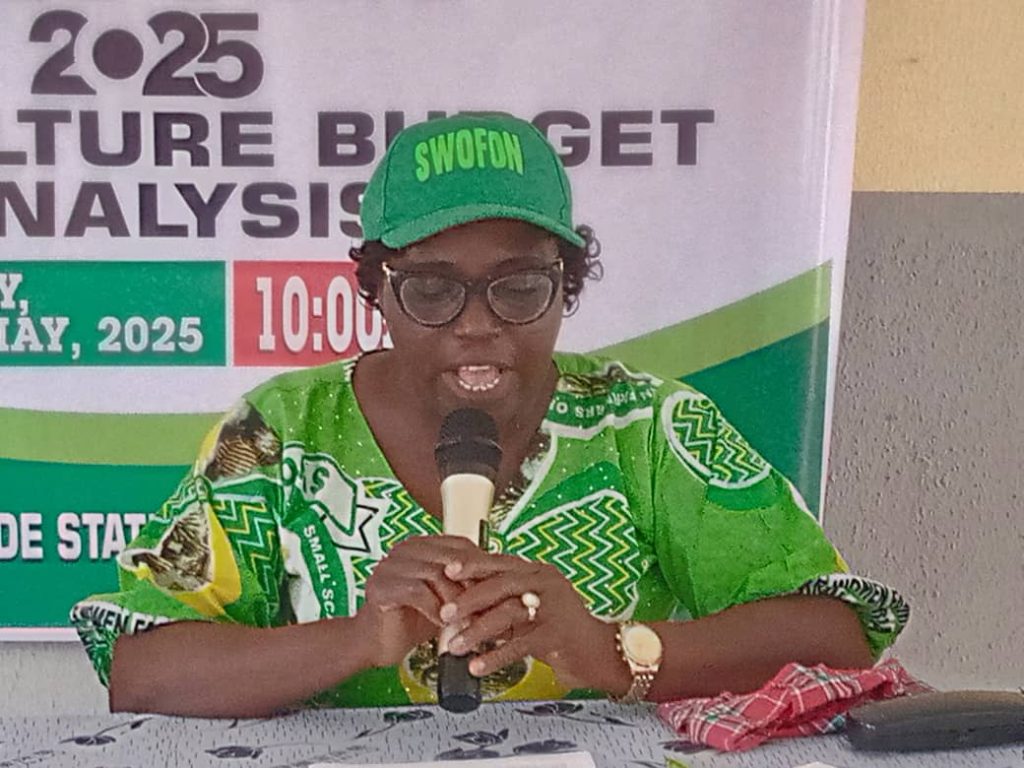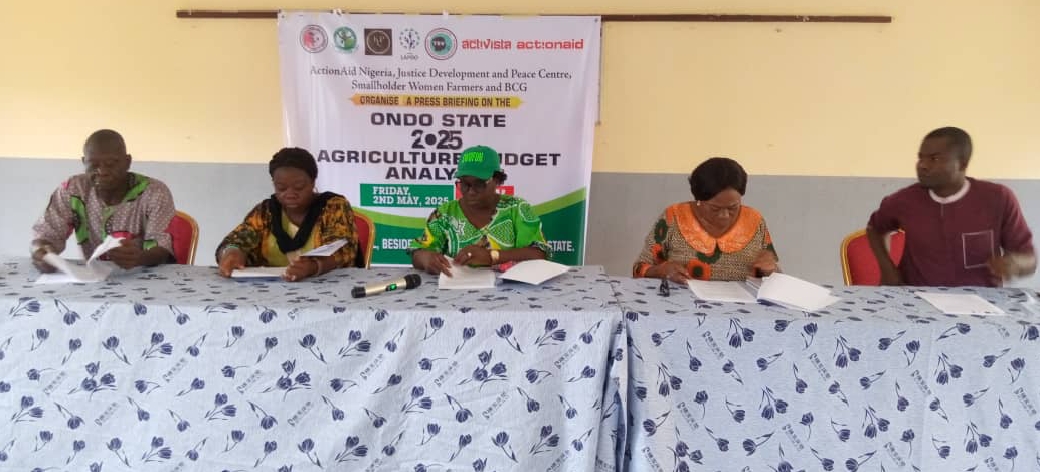Stakeholders in the agricultural sector in Ondo State have raised concerns over the declining budgetary allocation to women in agriculture, despite their significant contribution to food production.
The stakeholders, including the Small-Scale Women Farmers Organization in Nigeria (SWOFON), with support from the Justice Development and Peace Centre (JDPC) and ActionAid Nigeria, presented their concerns during the 2025 analysis of the Ondo State agriculture budget by the Budget Committee Group (BCG).
They noted that women constitute 70% of the 90% of small-scale farmers in Nigeria, yet their representation in the state’s agriculture budget continues to dwindle. The stakeholders called on the government to proactively establish storage and processing facilities to reduce post-harvest losses, which disproportionately affect smallholder women farmers.

“These losses are partly responsible for the rising food inflation in the country,” they said. “The implication is a potential threat to food security. We therefore urge the government to increase strategic investments in agriculture through smallholder women farmers, who are the backbone of food and nutrition supply in the state.”
Among the key recommendations, the committee urged the Ondo State Government to:

Allocate at least 10% of its annual budget to agriculture, in line with the Maputo/Malabo declarations, to achieve a 6% annual growth rate in accordance with the CAADP framework.
Extend agricultural credit schemes beyond commercial farmers to include smallholder women farmers and youth.
Establish a microfinance bank specifically for small-scale farmers with single-digit interest rates to enhance productivity and food security.
Develop an enabling policy framework for easier access to credit and provide training to help farmers navigate loan processes.
Ensure timely release of agricultural funds and invest in climate change adaptation strategies through the agro-climatological department and extension services, focusing on crop patterning, planting calendars, and soil moisture conservation.
The stakeholders also highlighted the critical role of agricultural extension workers, calling for the urgent recruitment of dedicated personnel and improved welfare packages to support farmers, especially in remote communities.
Additionally, they emphasized the need for Public-Private Partnerships to foster direct relationships between farmers and private sector buyers, bypassing exploitative middlemen. They suggested aligning production budgets with market demand and allocating funds for agricultural research.

On irrigation, they criticized the current allocation of N20 million in the 2025 budget as grossly inadequate and called for expanded funding to cover more local governments in light of climate variability.
Lastly, the stakeholders urged the state government to urgently strengthen the security architecture in rural communities, particularly in Akure North Local Government Area, where farmers are increasingly falling victim to kidnappings and extrajudicial killings.
JDPC Programme Officer, Mr. Tobi Olayemi, reiterated the call for increased agricultural investment to support the state’s food security and economic resilience.


